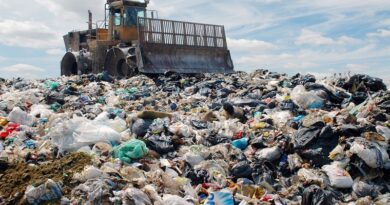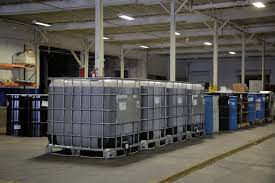Advantages and Disadvantages of Comminutor and Grinder in Wastewater Treatment Operations
In wastewater treatment operations, a comminutor and grinder are mechanical devices designed to break down and reduce the size of solid materials, contributing to the overall efficiency of the treatment process.
Let’s discuss the meaning of these terms in the context of wastewater treatment operations further for clearer understanding below;
A comminutor is a mechanical device specifically engineered to break down larger solid particles into smaller fragments. It plays a crucial role in the preliminary treatment stage of wastewater processing.
In this phase, raw wastewater often contains solid debris such as plastics, rags, and other bulky materials that can interfere with downstream processes if not properly managed.
The comminutor employs cutting or shearing mechanisms to shred and reduce the size of these solid materials. By breaking them into smaller pieces, the comminutor facilitates easier handling and processing in subsequent treatment steps. It helps prevent clogging and damage to pumps and equipment further along in the treatment train.
In essence, a comminutor acts as the first line of defense, ensuring that large and potentially disruptive solid materials are effectively reduced in size before the wastewater progresses to subsequent treatment units.
A grinder, in the context of wastewater treatment, is a robust mechanical device designed to macerate or grind down solid particles into smaller, more manageable sizes. While similar to a comminutor in its objective, a grinder is often employed for handling tougher, more resilient materials.
Grinders are commonly used in sewage and sludge treatment plants where the wastewater may contain items like heavy-duty textiles, plastic bottles, or even metal objects.
The grinding action of the device reduces these materials to particles that can be easily handled by downstream equipment without causing damage or disruption.
Grinders are strategically placed in the wastewater treatment process to protect pumps, pipes, and other sensitive equipment from damage caused by large, solid debris. By breaking down these materials into smaller fragments, grinders contribute to the overall operational reliability and efficiency of the treatment facility.
Both comminutors and grinders serve as essential components in the initial stages of wastewater treatment, helping to manage and reduce the size of solid materials present in raw wastewater.
Their role is critical for maintaining the integrity of downstream equipment, preventing clogging, and ensuring the smooth progression of wastewater through the treatment process.
Read Also: Impacts of Waste-water on the Environment, Treatment objectives and Disposal Regulations
Advantages of Comminutor and Grinder

A major advantage of using comminutors and grinders is that removal of grit reduces damage and maintenance to downstream processes.
Comminutors and grinders also eliminate screenings handling and disposal, which may improve the aesthetics of the plant, reducing odors, flies, and the unsightliness associated with screenings. Some recently developed grinders can chop, remove, wash, and compact the screenings.
The use of comminutors in cold weather eliminates the need to prevent collected screenings from freezing.
Comminutors and grinders typically have a lower profile than screens, so cost savings can be significant when the units must be enclosed.
Disadvantages of Comminutor and Grinder
Comminutors and grinders can create problems for downstream processes, such as increasing plastics buildup in digestion tanks or rag accumulation on air diffusers.
In addition, solids from comminutors and grinders will not decompose during the digestion process. If these synthetic solids are not removed, they may cause biosolids to be rejected for reuse as a soil amendment.
Read Also: 15 Medicinal Health Benefits Of Cranesbill (Geranium)



